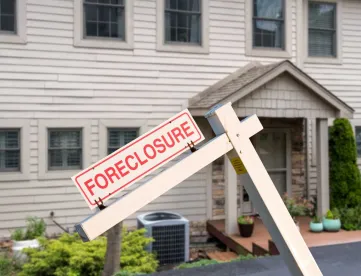In the ever-evolving landscape of residential real estate, California is once again at the forefront with the passage of Assembly Bill (AB) 1837 and AB 2170, which became effective on January 1, 2023. Aimed at increasing homeownership for individual residents, these laws build upon the groundwork laid by Senate Bill (SB) 1079 in 2020, which required institutions to sell foreclosed homes individually instead of in bundles, in an effort to create more affordable housing and community stability by limiting when investors can purchase foreclosed homes. The new law, codified in California Civil Code section 2923, extends SB 1079’s protections until January 1, 2031.
The strong real estate market in California has attracted private equity firms, which have been buying single family homes to add to their portfolios. According to CoreLogic, a California-based data analytics firm, these investors purchase about 25% of the single family homes on the market. These investors use their projections to predict growth markets and buy the lower end homes which have great rental potential, which takes these homes off the market for young and working class homebuyers.
What is an Institution?
Under Section 2923, an “Institution” is a persons or entities that annually foreclose on 175 or more properties (as established with its primary regulating agency in the proceeding annual reporting period), and includes:
- Depository institutions chartered under state or federal law;
- Persons licensed under the California Financing Law (Fin. Code §§ 22000, et seq.);
- Persons licensed under the California Residential Mortgage Lending Act (Fin. Code §§ 50000, et seq.); and
- Persons licensed under the Real Estate Law (Bus. & Prof. Code §§ 10000, et seq.).
For Institutions, understanding the implications of these new regulations is vital for navigating the complex world of foreclosure sales.
AB 2170: Prioritizing Eligible Bidders and Ensuring Transparency
For Institutions and investors engaged in the foreclosure market, AB 2170 introduced a significant shift in the foreclosure process. Institutions are now mandated to prioritize “Eligible Bidders” during the initial 30-day window after listing a real estate owned (REO)[1] property for sale, thereby leveling the playing field against corporate investors. An Eligible Bidder, in the context of California’s foreclosure laws, refers to individuals or entities that meet specific criteria outlined in the Civil Code, including:
Prospective Owner-Occupants: Natural persons who intend to occupy the purchased property as their primary residence. This individual cannot be the mortgagor, trustor (or its child, parent, spouse, employee, officer, member or person with an ownership interest therein), the grantor of a living trust that was named in the title to the property when the notice of default was recorded, or any person acting as the agent of any other person or entity in purchasing the property.
Nonprofit Corporations: Organizations recognized as nonprofit entities under relevant laws that are focused on housing and community development.
California Community Land Trusts: Land trusts established for the purpose of creating and maintaining affordable housing options for low- and moderate-income residents.
Limited-Equity Housing Cooperatives: Housing cooperatives where ownership is limited to ensure affordability and accessibility for residents with lower incomes.
Public Entities: Government agencies or authorities at the local, regional, or state level that are engaged in housing and community development efforts.
What sets this new law apart is its commitment to transparency. These Eligible Bidders are required to submit an affidavit under penalty of perjury that they are indeed qualified as an Eligible Bidder, as defined in the statute. Further, trustees are now required to respond in writing to all offers from Eligible Bidders during this 30-day period before considering other offers. This is a critical change that emphasizes the state’s intention to level the playing field and give Eligible Bidders a fair chance at purchasing properties.
Promoting Affordable Housing and Community Stability
In the realm of affordable housing, the new law sets new precedents. First, Institutions are no longer able to sell foreclosed properties in bundles, which the new law defines as 2 or more parcels of real property containing 1 to 4 residential dwelling units containing at least 2 units which were acquired through foreclosure. Second, properties purchased by Eligible Bidders are now obligated to be sold at an affordable housing cost or rented at an affordable rent for a span of 30 years from the date the trustee’s deed is issued. This provision considers the area’s median income and is structured to ensure accessibility for lower-income residents. For Institutions and investors, this aspect of the law underlines the importance of community stability and the role that responsible investments play in sustaining neighborhoods, and will reduce the availability of these homes on the market for corporate investors in the long run.
Compliance and Opportunities
For Institutions and investors active in the California foreclosure market, the new law presents both challenges and opportunities. Complying with the new regulations is crucial to avoiding potential legal pitfalls. By prioritizing Eligible Bidders and promoting affordable housing, these laws foster a more equitable real estate environment and can provide good will in the community for the Institutions. While the landscape may be evolving, it also opens doors for responsible investments that align with the state’s goals of strengthening neighborhoods and expanding homeownership opportunities.
Conclusion
In conclusion, California’s new foreclosure law, ushers in a new era of transparency, equity, and responsibility in the foreclosure market. For Institutions, these laws signify a call to action – to adapt to the changing landscape, to prioritize Eligible Bidders, and to contribute to the well-being of the communities in which they operate. As California continues to champion affordable housing and community stability, Institutions and investors have a unique opportunity to play a pivotal role in shaping a more inclusive and resilient housing market.
FOOTNOTES
[1] “Real estate owned” is the term for a property owned by a lender because it failed to sell in a foreclosure auction after the borrower defaulted on their mortgage.



 />i
/>i

